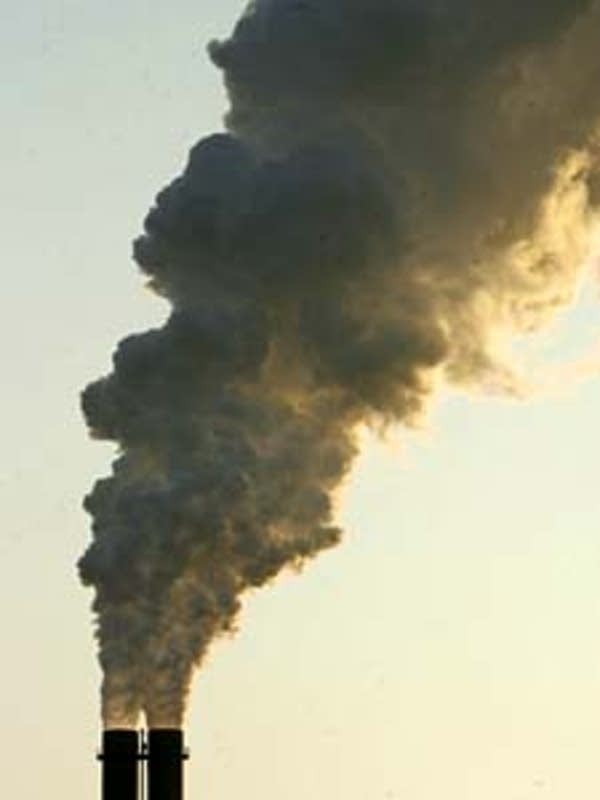High court blocks states' climate change lawsuit
Go Deeper.
Create an account or log in to save stories.
Like this?
Thanks for liking this story! We have added it to a list of your favorite stories.

By MARK SHERMAN, Associated Press
WASHINGTON (AP) - The Supreme Court unanimously ruled out a federal lawsuit Monday by states and conservation groups trying to force cuts in greenhouse gas emissions from power plants.
The court said that the authority to seek reductions in emissions rests with the Environmental Protection Agency, not the courts.
EPA said in December that it will issue new regulations by next year to reduce power plants' emissions of carbon dioxide, the chief greenhouse gas. The Obama administration has already started controlling heat-trapping pollution from automobiles and from some of the largest, and most polluting, industrial plants.
Turn Up Your Support
MPR News helps you turn down the noise and build shared understanding. Turn up your support for this public resource and keep trusted journalism accessible to all.
But the administration's actions have come under criticism in Congress, where the Republican-controlled House has passed a bill to strip the EPA from using the Clean Air Act to regulate global warming gases. The measure failed in the Senate, but a majority there indicated they would back reining in EPA in some way.
In pushing to curtail EPA's work, Republicans have accused the administration of acting unilaterally after failing to get a bill passed to deal with the problem. The administration has said the overwhelming scientific evidence has compelled them to act under existing law.
Still, in this case, the administration sided with the power companies.
Justice Ruth Bader Ginsburg, writing for the court, said the Clean Air Act gives the EPA authority to regulate carbon-dioxide emissions from power plants.
The landmark environmental law leaves no room for what Ginsburg described as a parallel track, "control of greenhouse gas emissions by federal judges."
On the other hand, Ginsburg said, that the states and conservation groups can go to federal court under the Clean Air Act if they object to EPA's eventual decision.
David Doniger, the Natural Resources Defense Council lawyer who represented the conservation groups, called on EPA to impose new regulations "without delay." The agency has said it will act by May 2012, although the government's brief said it is possible EPA ultimately could find "imposition of such standards inappropriate."
The decision reversed a ruling by the 2nd U.S. Circuit Court of Appeals in New York.
Justice Sonia Sotomayor did not take part because she sat on the appeals court panel that heard the case.
The decision is the second time the court has weighed in on the issue of climate change, and the role of government to do something about it. The ruling on Monday underscores the court's earlier conclusion that existing federal law can be used to reduce the pollution blamed for global warming at a time when the administration is under attack for exercising that authority.
The situation was very different when eight states banded together to sue in 2004. At that time, a lawsuit looked like the only way to force action on global warming. The Bush administration and the Republicans in charge of Congress doubted the EPA's authority to regulate greenhouse gases.
The eight states were California, Connecticut, Iowa, New Jersey, New York, Rhode Island, Vermont and Wisconsin. New Jersey and Wisconsin withdrew this year after Republicans replaced Democrats in their governor's offices.
The private defendants in the suit are American Electric Power Co. of Ohio, Cinergy Co., now part of Duke Energy Corp. of North Carolina; Southern Co. Inc. of Georgia, and Xcel Energy Inc. of Minnesota.
The high court did not rule on some potential state-law claims. Ginsburg said those are best addressed by lower courts.
The case is American Electric Power Co. v. Connecticut, 10-174.
---
Associated Press writer Dina Cappiello contributed to this report.
(Copyright 2011 by The Associated Press. All Rights Reserved.)
Dear reader,
Political debates with family or friends can get heated. But what if there was a way to handle them better?
You can learn how to have civil political conversations with our new e-book!
Download our free e-book, Talking Sense: Have Hard Political Conversations, Better, and learn how to talk without the tension.





